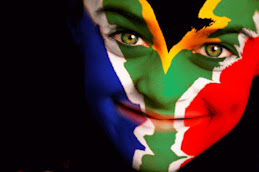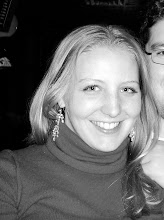As with any aspect of the development sector, immersing oneself in a NGO like PACSA requires  learning a new alphabet soup. My first week on site, I attended a CCOH workshop, which was sponsored by CABSA. A few weeks ago at long-term strategic planning, the staff discussed several OD concepts. In a month’s time I’ll be attending the SACC conference, which is not the same as the AACC conference a week later. On Wednesday I wrote a brief paper on the connection between HIV/AIDS and GBV, usually know as VAW, in South Africa. Are you following?
learning a new alphabet soup. My first week on site, I attended a CCOH workshop, which was sponsored by CABSA. A few weeks ago at long-term strategic planning, the staff discussed several OD concepts. In a month’s time I’ll be attending the SACC conference, which is not the same as the AACC conference a week later. On Wednesday I wrote a brief paper on the connection between HIV/AIDS and GBV, usually know as VAW, in South Africa. Are you following?
As working at an NGO means that one is inherently working on a deadline, the reader will have until the end of this reflection to memorize these:
AACC All Africa Council of Churches
CABSA Christian AIDS Bureau of South Africa
CCOH Churches Channels of Hope
GVB gender-based violence
NGO non-governmental organization
OD organizational development
SACC South Africa Council of Churches
UNAIDS United Nations Joint Program on HIV/AIDS
VAW violence against women
WHO World Health Organization
My work at PACSA is primarily with the gender desk, which tackles GBV, offers youth peer education in schools and churches, advocates for gender equality, and explores gender, theology and spirituality. Every day is different and may include a myriad of different projects. For example, last week I working on pulling statistics from the latest UNAIDS and WHO report on the AIDS pandemic for a publication and editing a master’s thesis on emerging conceptions of masculinity in post-apartheid South Africa. Most of the work is academic and based on organizational development principles. When I first arrived, some of the staff asked me what my discipline was, as if I am here to do research. It is sometimes difficult not to feel intimidated, because I don’t have a doctorate in development economics. I have been able to put my writing skills to good use though, as the majority of the staff do not speak English as a first language. The staff is something of a UN, representing not only South Africa (Zulu, Indian, and white), but Malawi, Swaziland, Kenya, Germany, Holland, and now the US.
offers youth peer education in schools and churches, advocates for gender equality, and explores gender, theology and spirituality. Every day is different and may include a myriad of different projects. For example, last week I working on pulling statistics from the latest UNAIDS and WHO report on the AIDS pandemic for a publication and editing a master’s thesis on emerging conceptions of masculinity in post-apartheid South Africa. Most of the work is academic and based on organizational development principles. When I first arrived, some of the staff asked me what my discipline was, as if I am here to do research. It is sometimes difficult not to feel intimidated, because I don’t have a doctorate in development economics. I have been able to put my writing skills to good use though, as the majority of the staff do not speak English as a first language. The staff is something of a UN, representing not only South Africa (Zulu, Indian, and white), but Malawi, Swaziland, Kenya, Germany, Holland, and now the US.
My placement sites at PACSA and the crèche create an interesting counterbalance to one another. Working in a township with limited access to electricity, water, and sanitation is, in many ways, as “on the ground” as development processes become. But I spend the other half of my week in a downtown office, complete with internet access, staff learning workshops, and a Christmas party in the planning. Like so many aspects of life in South Africa, the work at my placement sites exist in stark contrast to one another and yet are intimately connected. The type of work I do at the crèche, which is community-based, is often supported by NGOs like PACSA. Often my work at PACSA gives me a new idea or approach to try with the students and staff at the crèche. It is as though I travel between two different universes on a weekly basis, but my work at both sites is addressing economic inequality in South Africa. I look forward to continuing to work and to learn at each site, as the experience at one enrichs the other.
counterbalance to one another. Working in a township with limited access to electricity, water, and sanitation is, in many ways, as “on the ground” as development processes become. But I spend the other half of my week in a downtown office, complete with internet access, staff learning workshops, and a Christmas party in the planning. Like so many aspects of life in South Africa, the work at my placement sites exist in stark contrast to one another and yet are intimately connected. The type of work I do at the crèche, which is community-based, is often supported by NGOs like PACSA. Often my work at PACSA gives me a new idea or approach to try with the students and staff at the crèche. It is as though I travel between two different universes on a weekly basis, but my work at both sites is addressing economic inequality in South Africa. I look forward to continuing to work and to learn at each site, as the experience at one enrichs the other.
 learning a new alphabet soup. My first week on site, I attended a CCOH workshop, which was sponsored by CABSA. A few weeks ago at long-term strategic planning, the staff discussed several OD concepts. In a month’s time I’ll be attending the SACC conference, which is not the same as the AACC conference a week later. On Wednesday I wrote a brief paper on the connection between HIV/AIDS and GBV, usually know as VAW, in South Africa. Are you following?
learning a new alphabet soup. My first week on site, I attended a CCOH workshop, which was sponsored by CABSA. A few weeks ago at long-term strategic planning, the staff discussed several OD concepts. In a month’s time I’ll be attending the SACC conference, which is not the same as the AACC conference a week later. On Wednesday I wrote a brief paper on the connection between HIV/AIDS and GBV, usually know as VAW, in South Africa. Are you following?As working at an NGO means that one is inherently working on a deadline, the reader will have until the end of this reflection to memorize these:
AACC All Africa Council of Churches
CABSA Christian AIDS Bureau of South Africa
CCOH Churches Channels of Hope
GVB gender-based violence
NGO non-governmental organization
OD organizational development
SACC South Africa Council of Churches
UNAIDS United Nations Joint Program on HIV/AIDS
VAW violence against women
WHO World Health Organization
My work at PACSA is primarily with the gender desk, which tackles GBV,
 offers youth peer education in schools and churches, advocates for gender equality, and explores gender, theology and spirituality. Every day is different and may include a myriad of different projects. For example, last week I working on pulling statistics from the latest UNAIDS and WHO report on the AIDS pandemic for a publication and editing a master’s thesis on emerging conceptions of masculinity in post-apartheid South Africa. Most of the work is academic and based on organizational development principles. When I first arrived, some of the staff asked me what my discipline was, as if I am here to do research. It is sometimes difficult not to feel intimidated, because I don’t have a doctorate in development economics. I have been able to put my writing skills to good use though, as the majority of the staff do not speak English as a first language. The staff is something of a UN, representing not only South Africa (Zulu, Indian, and white), but Malawi, Swaziland, Kenya, Germany, Holland, and now the US.
offers youth peer education in schools and churches, advocates for gender equality, and explores gender, theology and spirituality. Every day is different and may include a myriad of different projects. For example, last week I working on pulling statistics from the latest UNAIDS and WHO report on the AIDS pandemic for a publication and editing a master’s thesis on emerging conceptions of masculinity in post-apartheid South Africa. Most of the work is academic and based on organizational development principles. When I first arrived, some of the staff asked me what my discipline was, as if I am here to do research. It is sometimes difficult not to feel intimidated, because I don’t have a doctorate in development economics. I have been able to put my writing skills to good use though, as the majority of the staff do not speak English as a first language. The staff is something of a UN, representing not only South Africa (Zulu, Indian, and white), but Malawi, Swaziland, Kenya, Germany, Holland, and now the US.My placement sites at PACSA and the crèche create an interesting
 counterbalance to one another. Working in a township with limited access to electricity, water, and sanitation is, in many ways, as “on the ground” as development processes become. But I spend the other half of my week in a downtown office, complete with internet access, staff learning workshops, and a Christmas party in the planning. Like so many aspects of life in South Africa, the work at my placement sites exist in stark contrast to one another and yet are intimately connected. The type of work I do at the crèche, which is community-based, is often supported by NGOs like PACSA. Often my work at PACSA gives me a new idea or approach to try with the students and staff at the crèche. It is as though I travel between two different universes on a weekly basis, but my work at both sites is addressing economic inequality in South Africa. I look forward to continuing to work and to learn at each site, as the experience at one enrichs the other.
counterbalance to one another. Working in a township with limited access to electricity, water, and sanitation is, in many ways, as “on the ground” as development processes become. But I spend the other half of my week in a downtown office, complete with internet access, staff learning workshops, and a Christmas party in the planning. Like so many aspects of life in South Africa, the work at my placement sites exist in stark contrast to one another and yet are intimately connected. The type of work I do at the crèche, which is community-based, is often supported by NGOs like PACSA. Often my work at PACSA gives me a new idea or approach to try with the students and staff at the crèche. It is as though I travel between two different universes on a weekly basis, but my work at both sites is addressing economic inequality in South Africa. I look forward to continuing to work and to learn at each site, as the experience at one enrichs the other.











